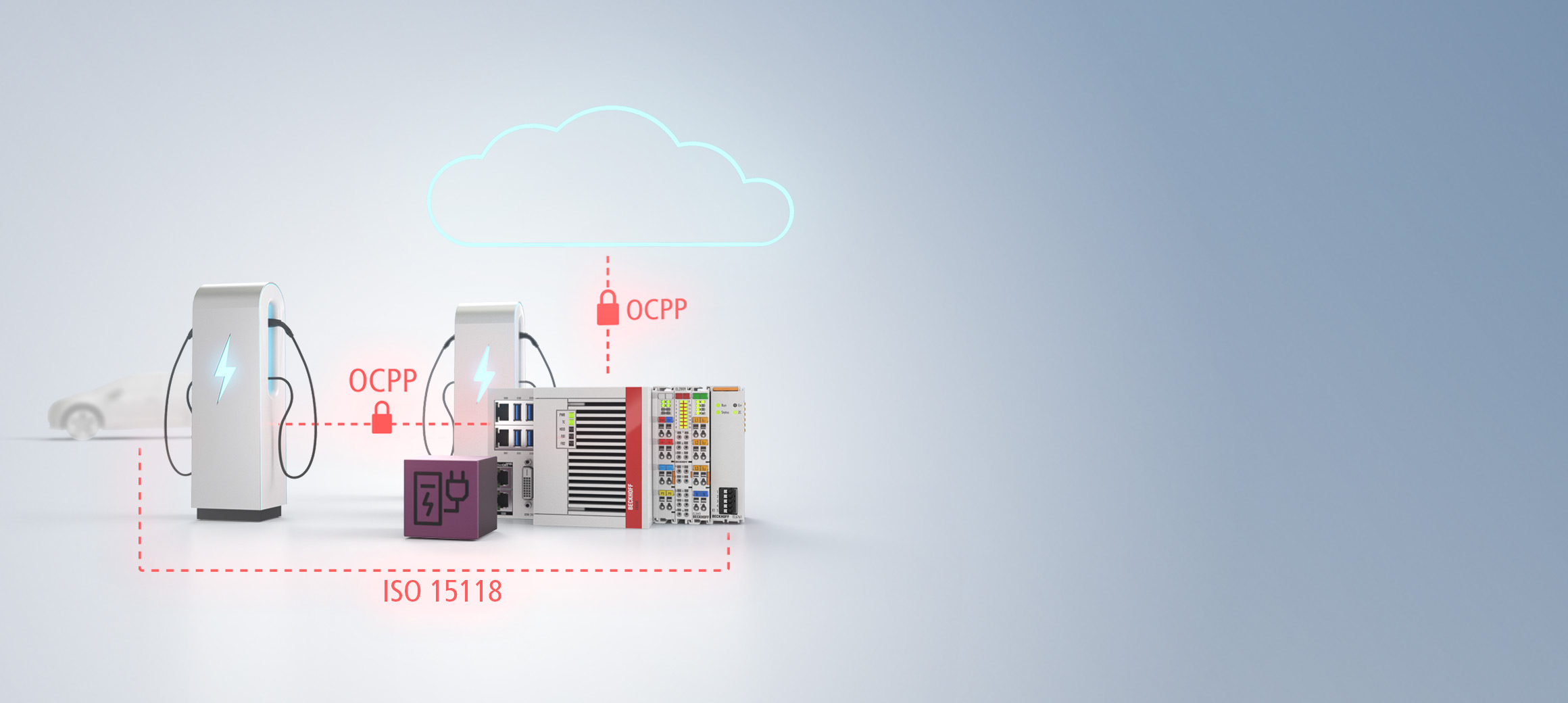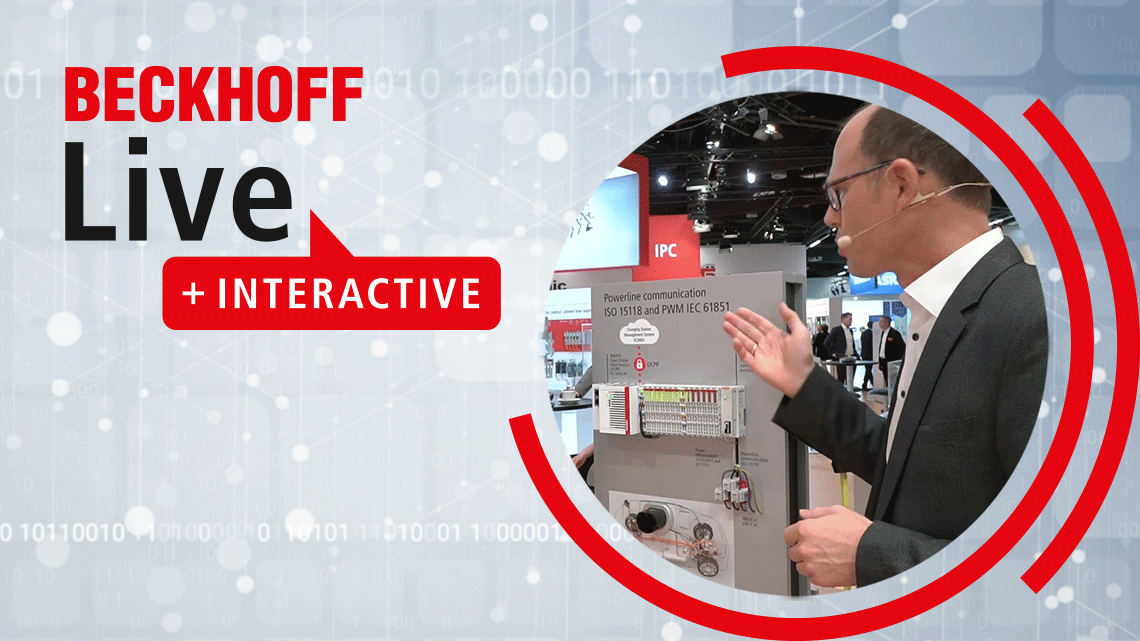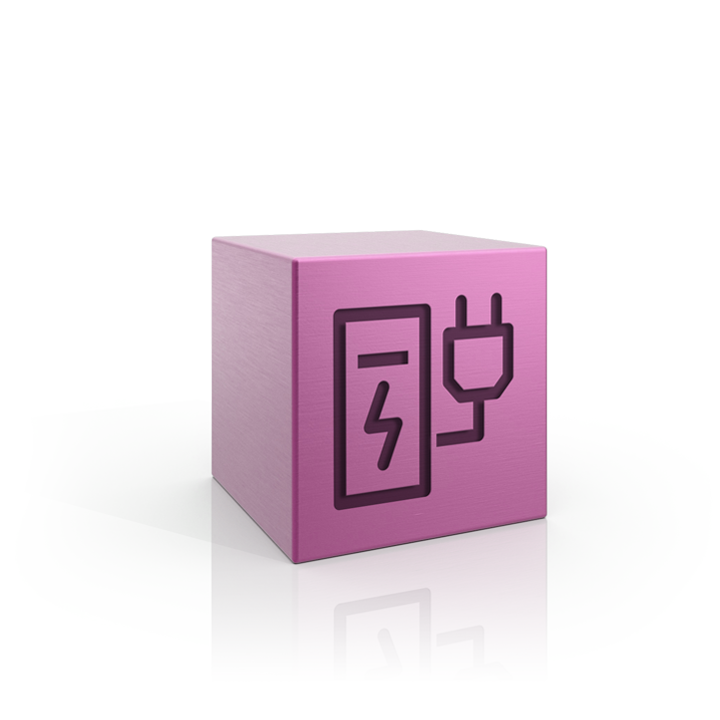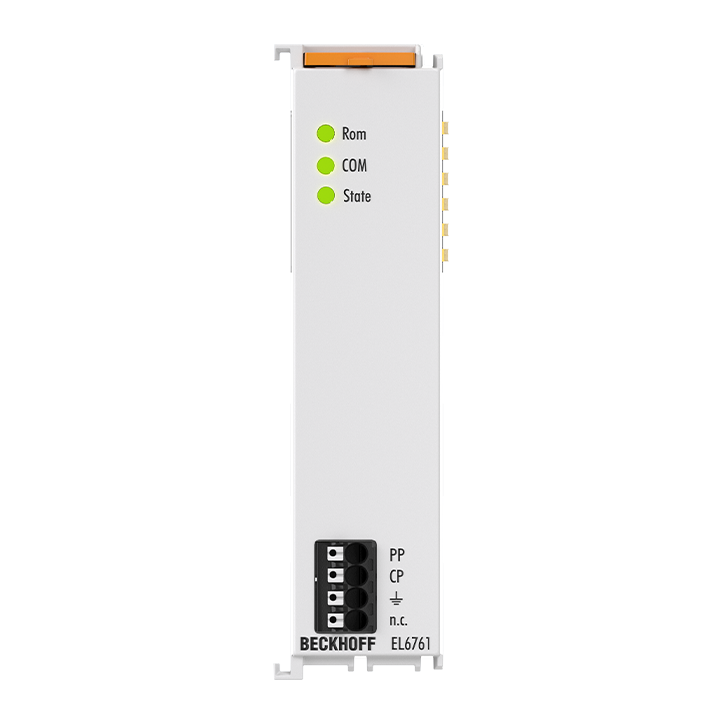
TwinCAT 3 IoT OCPP and EL6761
The complete solution for communication with charging infrastructure and electric vehicles
Headquarters United Kingdom
Beckhoff Automation Ltd.
+44 1491 4105-39
info@beckhoff.co.uk
www.beckhoff.com/en-gb/

The complete solution for communication with charging infrastructure and electric vehicles

Beckhoff has added the Open Charge Point Protocol (OCPP) to the TwinCAT IoT product portfolio based on the WebSocket protocol which has recently been introduced for the IoT driver. OCPP standardizes the communication between charging stations for electric vehicles and the associated central management systems. This is combined with the new EL6761 EtherCAT Terminal, which serves as a communication interface in accordance with IEC 61851 and ISO 15118, to create a universal solution for charging infrastructure communication.
With the new function TwinCAT 3 IoT OCPP (TF6771), OCPP was implemented as a C++ driver with the associated PLC library as a wrapper. Due to their high market relevance, OCPP versions 1.6 and 2.0.1 are being implemented first. The focus is on the following two use cases:
The EL6761 1-channel communication interface also offers two options: the EtherCAT Terminal can be used to enable communication for the charging infrastructure, directly to the electric vehicle and from it to the higher-level charging management system. Two independent communication standards are supported – PWM communication according to IEC 61851 and powerline communication according to ISO 15118. The latter provides a flexible communication channel to transmit all necessary data between the vehicle and the charging station.

The Open Charge Point Protocol (OCPP) is added to the IoT product portfolio based on the WebSocket protocol. OCPP standardizes the communication between charging stations for electric vehicles and the associated central management systems (CSMS). OCPP versions 1.6 and 2.0.1 are used here on account of their market relevance.

The EL6761 EtherCAT Terminal enables communication for the charging infrastructure both to the EV (Electric Vehicle) and to the higher-level charging management system. It supports two completely independent communication standards: PWM communication in accordance with IEC 61851 and powerline communication as stated in ISO 15118. ISO 15118 communication provides a flexible communication channel for transporting all necessary data between the car and the charging station. In combination with OCPP (TF6771) as communication to higher-level controllers, this results in a complete communication system for charging infrastructure applications.